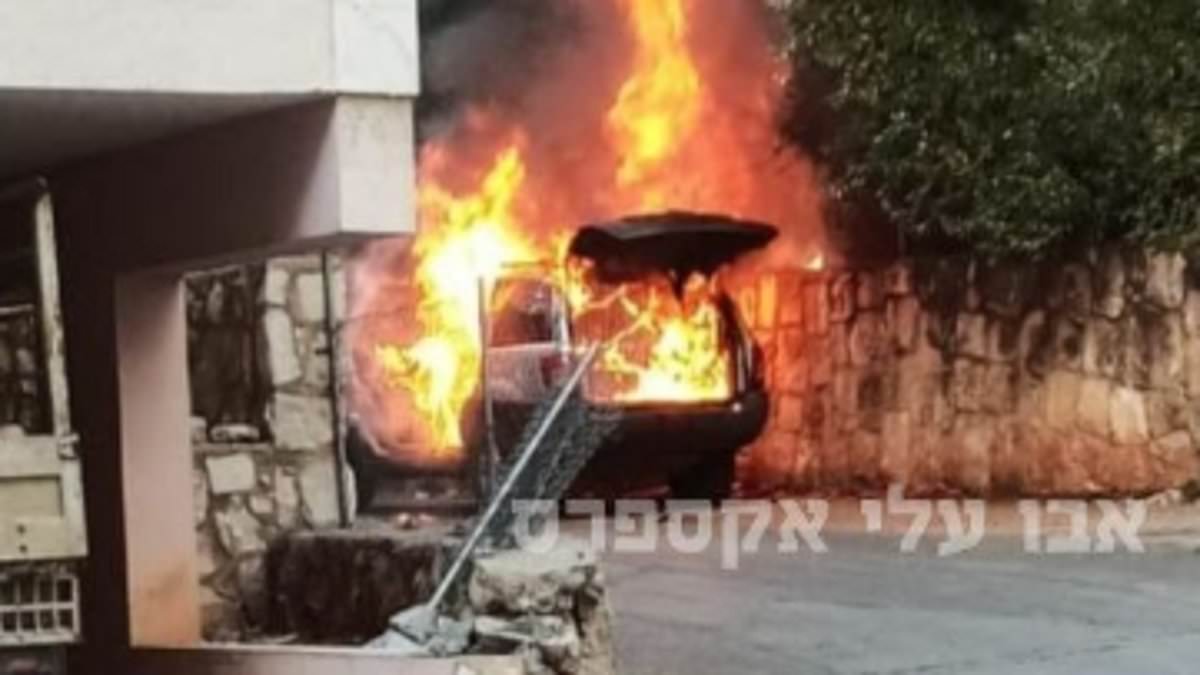The Mossad plot to boobytrap more than 5,000 pagers and walkie-talkies used by Hezbollah with high-powered explosives was two years in the making, according to reports.
At least 40 people were killed, and thousands more injured, in Lebanon across two days in mid-September after Israel set off explosives that were embedded within communication devices used by the terror group.
The explosions, which killed terrorists and Lebanese civilians alike, immediately called Hezbollah’s security practices into question.
The Washington Post reported that Mossad, Israel’s shadowy foreign intelligence and operations agency, began its plot to fill the pagers with explosives in 2022, more than a year before Hamas’ October 7 attack.
The pager plan came after Mossad was able to fill Hezbollah’s walkie-talkies with explosives as early as 2015, leaving them to lay dormant until they needed to be set off.
Hezbollah, which has long been an enemy of Israel, used the low-grade pieces of tech to communicate with their fighters in order to stave off intelligence gathering by its foes.
Though the pagers and walkie-talkies were effective for a time, the Post revealed that Mossad had begun inserting booby-trapped devices into Lebanon nine years ago, with each device being fitted with an oversized battery pack, a hidden explosive and a transmission system that allowed Israel to listen in on communications.
For several years, the Israelis were content on eavesdropping on Hezbollah and holding on to the option to detonate them when they wanted.
But upon seeing a new product ripe for exploitation, Mossad decided to up the ante, buying up masses of Taiwanese Apollo-branded pagers, piggybacking off the back of a well-recognized trademark and product line with worldwide distribution and no discernible links to Israeli or Jewish interests that might’ve aroused Hezbollah’s suspicions.
The sales pitch to Hezbollah came from a marketing official trusted by Hezbollah with links to Apollo, whose name was not disclosed by the sources the Post spoke to.
She sold the terror group the AR924 model, according to an Israeli official: ‘She was the one in touch with Hezbollah, and explained to them why the bigger pager with the larger battery was better than the original model.’
One of the main selling points about the AR924 was that it was ‘possible to charge with a cable. And the batteries were longer lasting,’ the official said.
Mossad’s pagers, which weighed less than three ounces each, held a battery pack that carried a tiny amount of a powerful explosive, enough to cause severe damage.
The bomb-battery component was reportedly so carefully hidden that it evaded Hezbollah’s attempts to disassemble and analyse the devices.
Another trick up Mossad’s sleeve to ensure that as many people as possible were hurt or killed was to ensure that the signal to trigger the explosives required two hands to use.
The pagers had a special ‘encrypted messages’ function that could only be accessed if the user was holding the device with both hands, which Mossad used as cover for the instruction to detonate the explosive.
In the ensuing explosion, the users would almost certainly ‘wound both their hands,’ an official said, and thus ‘would be incapable to fight.’
But it wasn’t just Hezbollah’s fighters who were killed in the attack. Children, including eight-year-old Fatima Abdullah were killed in the pager explosions.
The young girl was studying in her family’s kitchen in their home in the village of Saraain El Faouqa in Lebanon’s Bekaa Valley when she heard a wireless pager bleep.
Her friend nine-year-old Ali Abdullah told Andalou: ‘Fatima was sitting on the sofa and was studying when the pager rang. She picked it up to give it to her father who was outside, but it exploded in her hand.’
Her aunt, also called Fatima, added: ‘Fatima had just returned from her first day of school, brimming with enthusiasm. She was a top student and loved by everyone.’
Since the explosions on September 17 and 18, violence between Hezbollah and Israel has dramatically soared, with the two groups currently bitterly fighting across Lebanon’s south.
A huge fireball lit up the sky and plumes of smoke rose over south Beirut overnight as Israel unleashed intense air strikes targeting Hezbollah, nearly a year since the Gaza war erupted.
Lebanese Prime Minister Najib Mikati called on the international community to put pressure on Israel for a ceasefire as another strike hit the capital’s southern suburbs.
Israeli forces were on high alert ahead of Monday’s anniversary of Hamas’s October 7 attack, which sparked the war.
After a devastating year-long conflict in Gaza, Israel has now turned its focus northwards to Hezbollah, Hamas’s Iran-backed ally in Lebanon.
Lebanon’s official National News Agency said Hezbollah’s south Beirut stronghold was hit by more than 30 strikes, heard across the city. A petrol station and a medical supplies warehouse were hit.
‘The strikes were like an earthquake,’ said shopkeeper Mehdi Zeiter, 60.
Israel’s military said it struck weapons storage facilities and infrastructure while taking measures ‘to mitigate the risk of harming civilians’.
AFPTV footage showed a massive fireball over a residential area, followed by a loud bang and secondary explosions. Smoke still billowed from the site after dawn.
In the Sabra area, near the southern suburbs, dozens of people, some carrying bags on foot and others on motorbikes, fled one of the most intense bombardments of the Israel-Hezbollah war.
Hezbollah said it targeted Israeli forces with artillery after they tried to infiltrate towards Khallat Shuaib in Blida, in southern Lebanon.
A statement said fighters fired rockets at Israeli troops during the evacuation of ‘dead and wounded soldiers’ in the Menara border area after midnight.
Hezbollah also said it launched assault drones against an Israeli military base.
